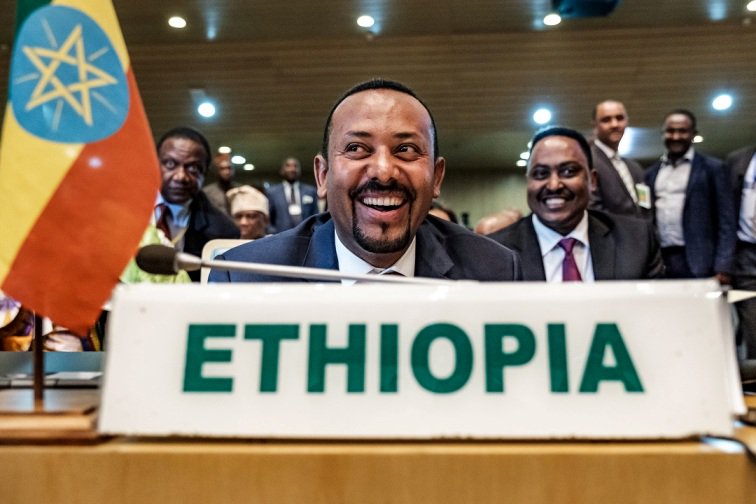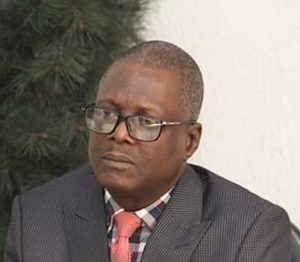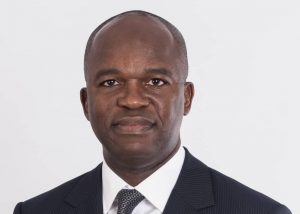Managing Ethiopia’s Unsettled Transition

Ethiopia’s charismatic new prime minister, Abiy Ahmed, has generated great excitement with initiatives breaking with the past. But he faces challenges as formidable as his promises are bold: he urgently needs to halt communal strife, smooth the road to elections and boost the ailing economy.What’s new? Ethiopia’s new premier, Abiy Ahmed Ali, has made peace with Eritrea, extended a conciliatory hand to opponents, and promised moves to free and fair elections, expanded political space and economic reform. But amid the exhilarating changes, insecurity proliferates, the number of internally displaced people mounts and the economy struggles.Why does it matter? Abiy’s bold moves have won plaudits from Ethiopians who have been protesting for change since 2014 and from donors who are eager to see democratic reform. But he now must make changes to his governance style in order to defuse ethnic and communal tensions and garner support for critical reforms.What should be done? In seeking to restore security and calm ethnic tensions, Abiy should govern more inclusively, working collaboratively with state institutions on reforms and involving civil society in reconciliation efforts. He should also begin preparing for the 2020 elections (ensuring broad political support for any violence-related delays) and focus on economic modernisationExecutive SummaryAfter four years of street protests, the ruling Ethiopian People’s Revolutionary Democratic Front (EPRDF) elected Abiy Ahmed Ali prime minister on 2 April 2018. For many Ethiopians Abiy is a breath of fresh air. He admits the ruling coalition’s shortcomings, pledges reform, preaches unity and has made peace with Ethiopia’s old foe, Eritrea. Yet if Abiy has raised enormous expectations, he also faces daunting challenges. Insecurity has intensified and proliferated across the country, with communal violence tearing at the multi-ethnic fabric of Ethiopian society. Regional leaders demand more power. The economy is on life support, with foreign debt in excess of $24 billion, many young people without jobs and an old guard resistant to reform. There are no easy fixes for these challenges, but Abiy can give himself the best odds by focusing on three priorities – working to stop communal conflict, preparing for 2020 elections and reforming the dangerously weak economy.The crisis that led to Abiy’s assumption of power was years in the making. Protests broke out in 2014 over discrimination against the Oromo – the country’s largest ethnic group – and spread to other groups, especially the Amhara, its second largest. Discontent with tough socio-economic conditions, as well as with the ruling party’s 27 years in power and its domination by a small, mostly Tigrayan, elite, was already widespread. The EPRDF, weakened by factional quarrels after the August 2012 death of strongman Prime Minister Meles Zenawi, struggled to contain the unrest. Meles’s successor, Hailemariam Desalegn, veered from cabinet reshuffles and political prisoner releases to crackdowns including new arrests of opposition leaders and demonstrators. In October 2016, a state of emergency brought temporary calm, but the protesters’ demands for political reform and socio-economic improvements still largely went unmet.On 15 February 2018, Hailemariam resigned. By then the EPRDF elite – and especially its Tigrayan component – had lost its grip. With power dispersed among the security sector’s upper echelons, who were divided over whether to reform or protect the status quo, the EPRDF proved unable to steer the battle for succession. The Oromo People’s Democratic Organization, one member of the EPRDF coalition, stepped most assertively into the breach. Backed – in a break from tradition – by the Amhara National Democratic Movement, another EPRDF party, it propelled the Oromo nominee, Abiy Ahmed Ali, into the premiership. At age 42, Abiy is considerably younger than the old guard and, with the sympathy of many protesters, he appears well suited to the task of assuaging the grievances of the country’s neglected groups.Changes during Abiy’s first months in office have been fast-paced. Abroad, he has signed a peace deal with Ethiopia’s long-time enemy Eritrea, while strengthening ties with other neighbours and with influential Gulf states, such as Saudi Arabia and the United Arab Emirates, with whom relations were previously fraught. At home, he has sent long-serving politicians and security officials into overdue retirement and detained others. He has assembled a media-savvy team to disseminate an inclusive message, condemning the EPRDF’s past abuses and promising free and fair elections and a more legitimate and inclusive political system. In order to reduce the country’s crushing debt, he has vowed to open up the state-dominated economy – a major shift from the developmental state model espoused by Meles. Hopes in Ethiopia are high.At the top of the new prime minister’s priority list must be the restoration of security through calming ethnic tension and violence.So far, Abiy has set in motion important reforms, but enormous obstacles remain. Many Ethiopians are impatient for change. Communal violence has spread with an intensity unprecedented in the past quarter-century. Ethnic militias are proliferating. Unrest in the capital in September 2018 left at least 58 dead and led Abiy to cancel a trip to the UN General Assembly’s opening week. Within the ruling party, no consensus exists on how to tackle the country’s many challenges. Factions both inside and outside the EPRDF disagree over how much power should be devolved to federal regions and, as Abiy avoids taking a position, regional leaders jostle for greater autonomy, often under pressure from ethnic hardliners. Abiy himself contends with growing nationalist sentiment among his own Oromo constituents, many of whom expect him to serve their interests above those of others. For now, generous Gulf donations are keeping the economy afloat, but sky-high national debt means that Abiy at some point will have to embark upon belt-tightening.At the top of the new prime minister’s priority list must be the restoration of security through calming ethnic tension and violence. To encourage a positive national tone, Abiy should develop a governance style that matches his inclusive rhetoric. Working with ministries and the civil service to develop the reforms that they will implement can help dispel the impression shared by some that he is governing from a closed circle of co-ethnic and co-religionist advisers. It also can reenergise a bureaucracy that has been adrift. To improve prospects for a planned national reconciliation process, the prime minister should invite civil society – particularly the Inter-Religious Council, a multi-faith group that promotes dialogue among various segments of society – to play a bigger role. Elders, too, should take a more prominent part. The latter two groups may enjoy greater credibility in stimulating frank dialogue at the grassroots level over issues driving violence, including border disputes and perceptions of injustice – historical and more recent – since they are not direct players in forthcoming electoral campaigns.There are other priorities, too. With the 2020 elections fast approaching (and local elections due in mid-2019), the administration has precious little time to prepare, and the same is true of a raft of political parties that have never before had the opportunity to participate in a credible election. Donors should work collaboratively with authorities and the incipient local civil society movement to help surmount formidable logistical challenges, including ensuring a transparent voter registration process that does not exclude those who have been displaced by violence from their homes. Abiy should reach out to the opposition to agree on a dispute resolution framework ahead of the vote. This step might minimise the temptation of those unhappy with the outcome to resort to violence.Lastly, the prime minister will need to institute comprehensive economic reforms: creating opportunities for greater domestic and foreign investment; streamlining regulation; breaking up inefficient state monopolies; carrying out banking reform to free up lending to the private sector; increasing manufacturing and agricultural productivity and revitalising the long-neglected small and medium-sized enterprise segment of the economy. All these measures will be critical to begin producing jobs for the burgeoning population.For their part, Ethiopia’s international partners should, through a coordination mechanism, support his reform efforts with quiet counsel and the substantial financial aid needed to breathe new life into an economy whose pre-existing weaknesses have been compounded by five years of unrest and capital flight. They should disburse these funds as soon as possible to help the new administration address festering grievances over mass youth unemployment, which some leaders exploit to drive violence. All the while, they should keep in mind the dangers of an overly rapid transition and advise Abiy to adopt policies that favour long-term stability.What happens in Ethiopia matters well beyond its borders. It is Africa’s second most populous country and one of its largest. It is also one of its more geopolitically significant – the only major country on the continent to have escaped colonialism and the seat of the African Union. Abiy’s drive to introduce more legitimate and inclusive governance in this prominent nation bucks a trend toward authoritarianism in the region and is closely watched across the continent and further afield. The stakes are high. If the experiment succeeds, the result could offer a powerful example to others. Failure – and especially a further turn into large-scale ethnic violence – would have major negative implications for an already unsettled region. The hope is that Abiy can create a more open and prosperous society, with benefits for Ethiopia and the region. This will require that the government bring under control the forces the transition has unleashed.Nairobi/Brussels, 21 February 2019






